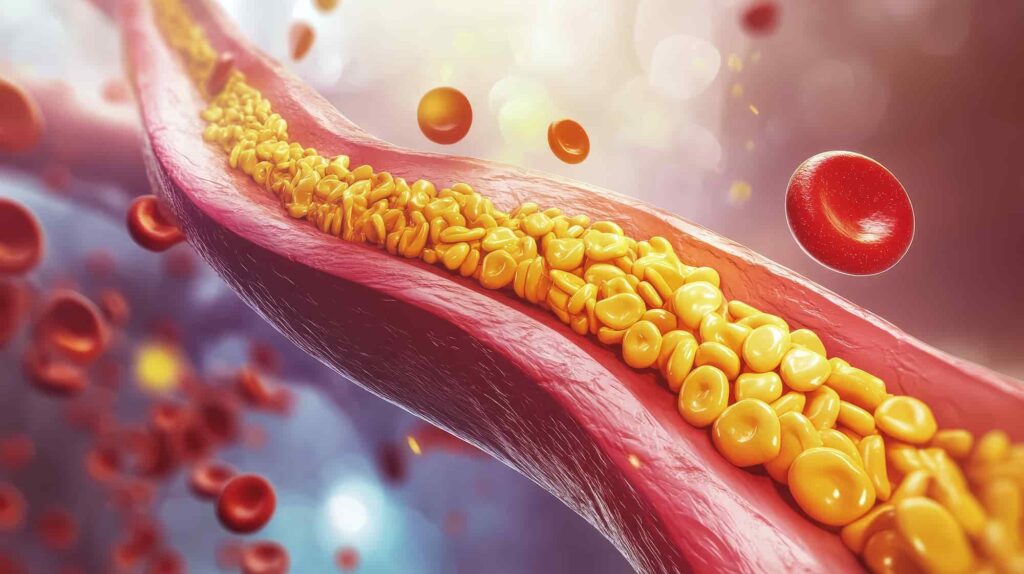High Cholesterol: Separating Fact from Fiction and Taking Control of Your Heart Health
High cholesterol is one of the most common yet misunderstood health concerns worldwide. Many people believe that cholesterol is always harmful, but the truth is more nuanced. Your body actually needs cholesterol to function, but when cholesterol levels rise above normal, it can put your heart health at risk. At German Medical Center, we help patients understand the difference between fact and fiction when it comes to high cholesterol, while offering effective ways to take control of their health.
What Is Cholesterol and Why Does It Matter?
Cholesterol is a waxy, fat-like substance found in your blood. It plays a vital role in producing hormones, vitamin D, and substances that help you digest food. However, too much cholesterol can build up in your arteries, forming plaques that increase the risk of heart attack or stroke.
There are two types of cholesterol you should know:
- LDL (Low-Density Lipoprotein): Often called “bad cholesterol” because it contributes to plaque buildup.
- HDL (High-Density Lipoprotein): Known as “good cholesterol,” as it helps remove LDL from your bloodstream.
Maintaining healthy cholesterol levels is key to protecting your heart and preventing cardiovascular disease.
Common Myths About High Cholesterol
Many myths circulate about cholesterol, which can prevent people from taking the right steps. Let’s separate fact from fiction:
- Myth 1: Only overweight people have high cholesterol.
Fact: Even people at a healthy weight can have elevated cholesterol due to genetics, diet, or lifestyle factors. - Myth 2: Cutting out all fats lowers cholesterol.
Fact: Your body needs healthy fats. Unsaturated fats found in olive oil, nuts, and fish actually support heart health. - Myth 3: High cholesterol always causes symptoms.
Fact: High cholesterol is often silent. Most people only discover it through routine blood tests.
What Puts You at Risk?
Several factors increase the risk of high cholesterol:
- Unhealthy diet high in trans fats and processed foods
- Lack of physical activity
- Smoking and alcohol consumption
- Family history of heart disease
- Medical conditions such as diabetes or thyroid disorders
Understanding these risk factors is the first step toward prevention.
Managing and Treating High Cholesterol
At German Medical Center, we emphasize a combination of lifestyle changes and medical support to manage cholesterol levels. Here’s what works:
- Heart-Healthy Diet: Focus on fruits, vegetables, lean proteins, and whole grains. Reduce saturated fats and processed foods.
- Regular Exercise: Aim for at least 150 minutes of moderate activity per week.
- Quit Smoking: Improves HDL cholesterol and reduces cardiovascular risks.
- Medication (if needed): Statins and other prescribed treatments can effectively lower LDL levels.
- Routine Check-ups: Regular monitoring helps track progress and prevent complications.
Why Early Detection Matters
Because high cholesterol has no obvious symptoms, routine blood tests are essential. Early detection allows for timely intervention, significantly reducing the risk of heart disease and stroke.

Cholesterol Care at German Medical Center
Our team of specialists at German Medical Center in Dubai offers personalized cholesterol management programs tailored to your lifestyle and health goals. Whether you need routine testing, preventive care, or advanced treatment, we are here to support your journey toward better heart health.
Final Thoughts
High cholesterol is not something to ignore, but it is also not something to fear. With the right knowledge, lifestyle adjustments, and medical support, you can take control of your heart health. At German Medical Center, we are committed to helping our patients separate fact from fiction and build a healthier future.







